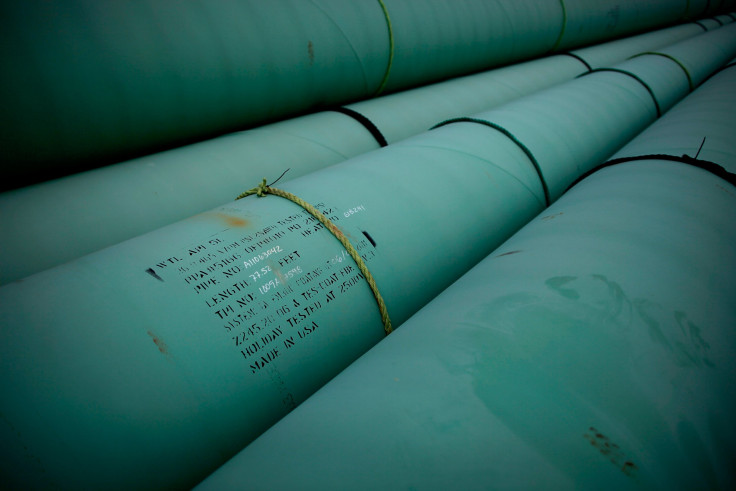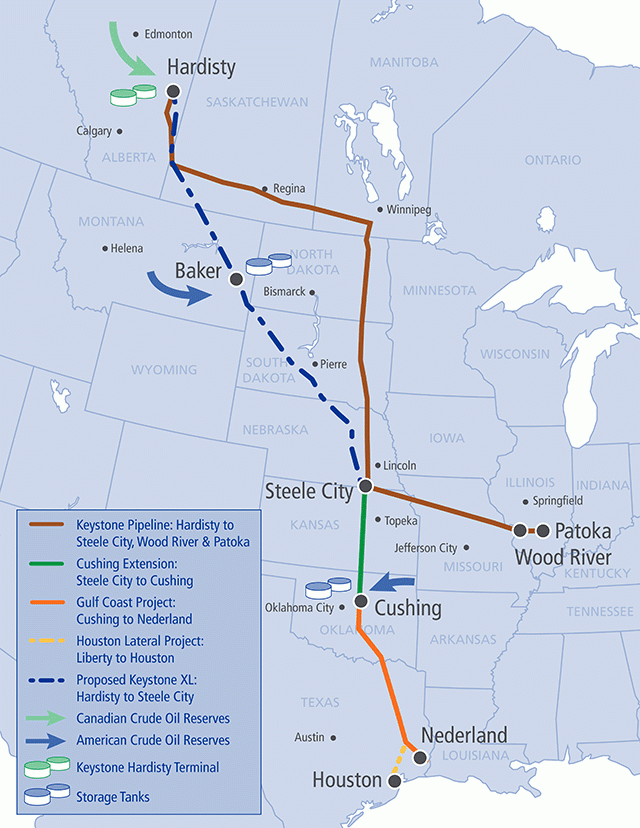Keystone XL Pipeline Still Economically Viable In Era Of Cheaper Crude Oil, Analysts Say

Falling crude oil prices are forcing developers in Canada's oil sands region to rethink their expansion plans. But the economic challenges are unlikely to reduce the need for the Keystone XL pipeline to Texas, energy analysts say. Even if developers cancel or delay some projects, the overall volume of oil coming from western Canada is still expected to surge in coming decades -- and that crude will need a way to get to global markets.
"It doesn't reduce the case for expanding pipeline infrastructure," Michael Ervin, president of MJ Ervin & Associates, said by phone from Calgary, Alberta. "The impetus for shipping that product still exists."
The Keystone XL would run 1,700 miles from the Alberta oil sands patch to Gulf Coast refineries, with the capacity to carry 830,000 barrels a day. TransCanada Corp., the project's builder, estimates the pipeline will cost $8 billion to construct. It initially projected costs of $5.4 billion but raised the figure this week, citing delays in the six-year-long U.S. regulatory process.
Over the past six months, Brent crude, an international benchmark, has plummeted to its lowest levels in four years. West Texas Intermediate, the U.S. standard, hit a three-year low on Tuesday. Waning demand in Europe and in China and surging production from U.S. shale formations create a glut and suppress prices.
Brent futures dipped below $83 on Friday, while WTI crude was trading around $78.

The cheaper crude is particularly painful for Canadian producers, who need higher prices to justify the expensive costs of developing the oil sands region. Unlike conventional oil, which springs from the ground, oil sands crude -- a tarry substance called bitumen -- must be mined or melted from geological formations, and then processed to separate it from sand, clay and water.
In the last decade, high oil prices, together with improving technologies, have fueled an oil boom in western Canada, and oil sands production has more than doubled to 1.9 million barrels a day. Before falling oil prices, production was expected to rise by another 2 million barrels within the next six years, according to Alberta energy officials.
But in recent months, major oil companies, including Royal Dutch Shell PLC, Total SA and Statoil ASA have started shelving oil sands projects due to weakening economics, and more developers could postpone their plans until oil prices rebound. The Carbon Tracker Initiative estimates that nine out of 10 barrels from Canada's undeveloped oil sands need prices of $95 a barrel or higher to be profitable, according to a report released Tuesday.
"The low price makes the economics of the Keystone XL more challenging," said Andrew Grant, a London-based financial analyst for the organization, which aims to limit fossil fuel investments.
He agreed that falling oil prices could thwart Alberta's 2 million-barrel growth plan for 2020, but it wouldn't wipe out new production entirely. "Are a million barrels likely to show up by then? Yes," Book said. "There's going to be more production."
Ervin said that a bigger threat to Keystone XL's economic viability could be competition from TransCanada's own Energy East pipeline project, which would ferry oil from Alberta to eastern Canadian refineries. Unlike the Keystone XL, the $12 billion, all-Canada project doesn't need U.S. approval, which could improve its chances of getting built first.
"That might set back the desire to invest [in Keystone XL] by a decade," Ervin said.
President Barack Obama said Wednesday that he is still considering whether to award or deny a federal permit for the Keystone XL. "There's an independent process that's moving forward; I'm going to let that process play out," he said in a post-Election Day press conference.
The president is under increasing scrutiny from Republican lawmakers, who siezed control of the U.S. Senate in the Tuesday elections. GOP leaders, who say the pipeline is an economic boon for Americans, have vowed to force a decision from the president when the new Congress meets in January.
In a 2013 speech, Obama said he would only approve the Keystone XL if it "does not significantly exacerbate the problem of carbon pollution. The net effects of the pipeline's impact on our climate will be absolutely critical to determining whether this project is allowed to go forward."
The administration has delayed its decision until a dispute in Nebraska is resolved. The Nebraska Supreme Court is considering a ruling that could invalidate the pipeline's route through that state.
© Copyright IBTimes 2024. All rights reserved.





















